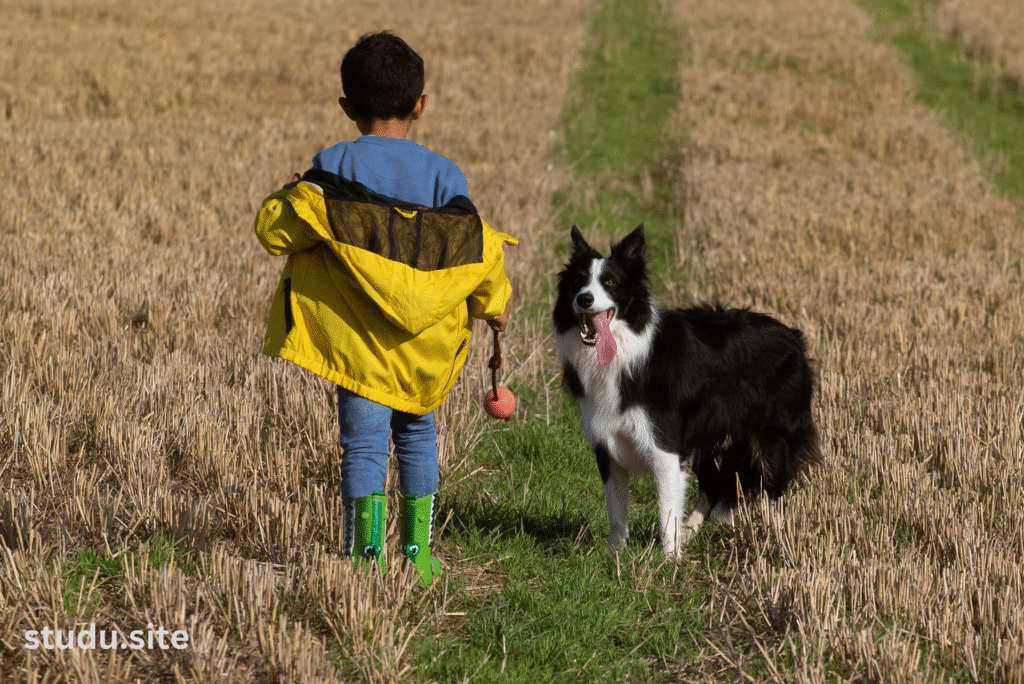Introduction
If you’re a dog owner, you may be asking yourself, “Can dogs eat mushrooms?” Whether your dog has sneaked a mushroom off the counter or you’ve caught them investigating wild mushrooms in the yard, it’s a reasonable question. Mushrooms are a diverse food group, with some being culinary delights and others posing serious health risks. While certain mushrooms are safe for dogs, others can be highly toxic.
This comprehensive guide explores which mushrooms are safe for your canine companion, the dangers of toxic mushrooms, and how to keep your dog safe.

Are Mushrooms Safe for Dogs?
All mushrooms are not equal when it comes to the canine diet. Mushroom safety for dogs varies according to type and preparation. Generally, mushrooms are divided into two groups for dogs: safe (edible) and toxic (wild or inedible). Let’s take it apart.
Safe Mushrooms for Dogs
Some commercially available mushrooms are relatively safe for dogs when prepared safely. These are:
-
Cremini (Agaricus bisporus): White button or brown mushrooms, cremini are safe if eaten by dogs in small amounts. They are low-calorie and rich in good nutrients such as potassium and B vitamins.
-
Shiitake (Lentinula edodes): Shiitake mushrooms are safe to eat if cooked. They can offer antioxidants and fiber.
-
Portobello (Agaricus bisporus): Mushrooms are safe for canine consumption when well-cooked and served plain, without seasonings or oils.
-
Oyster (Pleurotus ostreatus): Oyster mushrooms are another safe choice, providing possible immune system benefits.
When giving safe mushrooms to your dog, they must be plain, cooked, and free of toxic additives such as garlic, onions, or excessive oils. Raw mushrooms may be more difficult for dogs to digest and lead to mild stomach distress.
Toxic Mushrooms for Dogs
Whereas grocery store mushrooms are generally fine, wild mushrooms are not. Wild mushrooms contain many toxic compounds that are dangerous for dogs. A number of poisonous mushrooms include:
-
Amanita phalloides (Death Cap): One of the most toxic mushrooms that can lead to liver and kidney failure.
-
Amanita muscaria (Fly Agaric): With its red cap and white spots, this mushroom can lead to neurological impairment.
-
Inocybe spp. and Clitocybe spp.: Both of these species can cause vomiting, diarrhea, and neurological symptoms.
-
Galerina marginata: With a knack for being confused with mushrooms that are safe to eat, this species is toxic and can result in organ failure.
Wild mushrooms are unpredictable, and even professionals might find them hard to identify. It’s safest to consider all wild mushrooms toxic and keep your dog away from them.
Health Benefits of Safe Mushrooms for Dogs
If fed in moderation, healthy mushrooms can provide health benefits to dogs. Some possible benefits are:
-
Nutrient-Dense: Mushrooms such as cremini and shiitake have vitamins (B and D), minerals (potassium, selenium), and antioxidants to promote overall health.
-
Immune System Support: Some mushrooms, like shiitake, have beta-glucans, which can stimulate the immune system.
-
Low-Calorie Treat: Mushrooms are low in calories, a good treat for dogs on a weight management program.
-
Digestive Health: The fiber content of mushrooms can help in healthy digestion if given in small portions.
Just remember, though, that mushrooms shouldn’t constitute a significant portion of your dog’s diet. Consult your vet first, especially if your dog has any health problems.
Risks of Feeding Mushrooms to Dogs
While some mushrooms are harmless, there are serious risks of improper feeding or contact with poisonous types. These are the most important risks to know:
Mushroom Poisoning
Mushroom poisoning, or mycotoxicosis, happens when a dog eats poisonous mushrooms. Symptoms may last from minutes to hours and depend on the type of mushroom. Symptoms include:
-
Vomiting and diarrhea
-
Lethargy or weakness
-
Tremors or seizures
-
Jaundice (yellowing of the eyes or skin)
-
Abdominal pain
-
Difficulty breathing
In the most serious situations, mushroom poisoning will result in organ failure or death. Should your dog have ingested a wild mushroom, immediately call your veterinarian or an emergency animal clinic.
Digestive Upset
Even safe mushrooms can be a cause of digestive problems if fed in excess or not cooked properly. Undercooked or raw mushrooms can result in stomach upset, vomiting, or diarrhea. Cook mushrooms thoroughly and do not use seasonings toxic to dogs, such as onions or garlic.
Allergic Reactions
Some dogs are allergic to mushrooms, even to nontoxic ones. Symptoms of an allergic reaction are itching, swelling, or labored breathing. If your dog develops these symptoms after consuming mushrooms, discontinue feeding them and talk to your vet.
What to Do If Your Dog Eats a Wild Mushroom
If your dog eats a wild mushroom, move fast to reduce the risk of poisoning:
-
Remove the Mushroom: If safe to do so, remove any remaining pieces of mushroom from your dog’s mouth to avoid further ingestion.
-
Identify the Mushroom: If possible, take a photo or a sample of the mushroom (while wearing gloves to prevent contact) to be identified by a vet or mycologist.
-
Contact Your Veterinarian: Contact your veterinarian or an emergency clinic right away. In cases of mushroom poisoning, time is of the utmost importance.
-
Monitor Symptoms: Watch your dog for symptoms of distress, including vomiting, lethargy, or tremors, and notify your vet.
Your vet might induce vomiting, give activated charcoal, or offer supportive care depending on the case. Prompt treatment can make a big difference in your dog’s recovery.
How to Prevent Mushroom Poisoning in Dogs
Prevention is the best measure to ensure your dog is protected from poisonous mushrooms. To do so, adhere to the following guidelines:
-
Check Your Yard: Inspect your yard on a regular basis for wild mushrooms, particularly following rain or in dark and damp spots. Cut down any mushrooms that you see.
-
Supervise Outdoor Time: Watch over your dog closely during outdoor play or strolls to avoid it from sniffing or ingesting unfamiliar plants or mushrooms.
-
Train the “Leave It” Command: It is possible to teach your dog to “leave it” so they will not pick up mushrooms or other toxic substances.
-
Store Mushrooms Safely: Place grocery store mushrooms where your dogs cannot get to them, such as high on a cabinet.
Can Dogs Eat Cooked Mushrooms From Human Meals?
Mushrooms from human food, when cooked, may be problematic for dogs. Most foods have ingredients such as garlic, onions, butter, or excessive seasonings, which are poisonous or toxic to dogs. If you are willing to give mushrooms to your dog, boil them by themselves without seasonings and present in a small amount.
FAQs Regarding Dogs and Mushrooms
1. Can dogs consume canned mushrooms?
Canned mushrooms contain a lot of sodium or preservatives, which are not good for dogs. It is better to avoid canned mushrooms and use plain, cooked fresh mushrooms instead.
2. Are all wild mushrooms poisonous to dogs?
All wild mushrooms are not poisonous, but several of them are, and it is difficult to tell them apart. Just to be on the safe side, avoid all wild mushrooms with your dog.
3. How much of a safe mushroom can I give my dog?
Safe mushrooms are to be given in limited quantity, as a reward and not a regular part of their diet. A small amount (approximately 1–2 tablespoons for a medium-sized dog) is enough.
4. What should I do if my dog ate a mushroom I can’t identify?
Call your veterinarian at once and give as much information as you can regarding the mushroom and your dog’s symptoms.
Conclusion
So, do dogs have mushrooms as a food option? The response is that it varies based on the mushroom. Prepackaged ones such as cremini, shiitake, and portobello are usually okay if they are plain-cooked and served sparingly. But wild mushrooms are a serious threat and must be strictly avoided. By knowing what mushrooms are safe, knowing what the symptoms of poisoning are, and taking precautions, you can have your dog safe when you choose to give him the occasional mushroom snack. Always call your veterinarian prior to adding new foods to your dog’s diet, and be cautious around wild mushrooms in your area.
